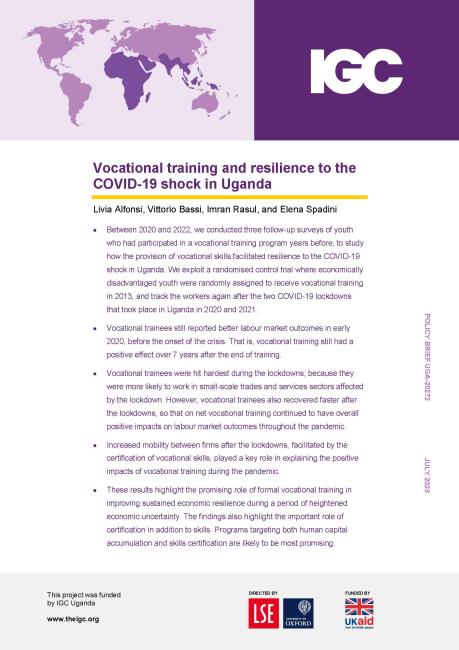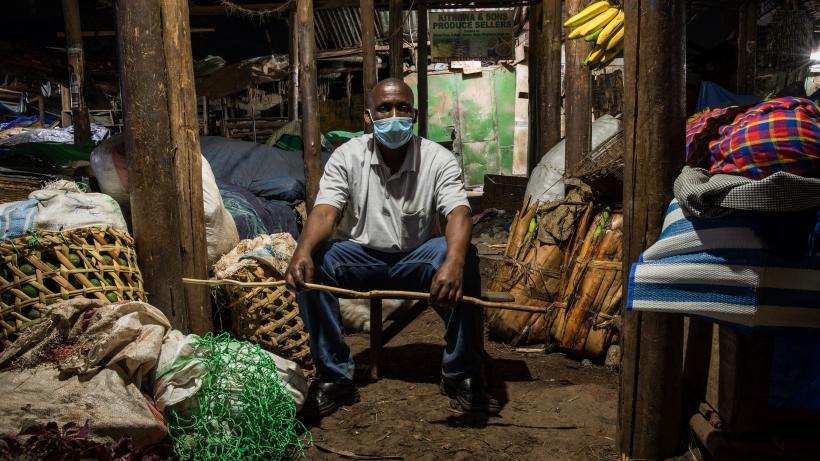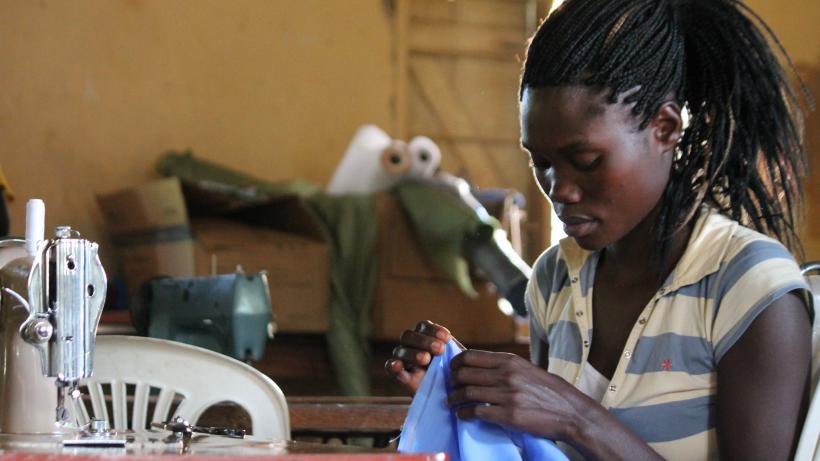Vocational training, on-the-job training, and resilience to COVID-19: Evidence from Uganda
Throughout 2020, governments around the world put in place restrictions to economic activity to curb the spread of COVID-19. In Uganda, the Government implemented one of Africa’s strictest lockdowns, which lasted for two months from late March. As a result, economic activity halted throughout the country.
In this project, we study how the labour market outcomes of young vulnerable workers in Uganda were affected by such a prolonged lockdown and assess the effectiveness of formal vocational training and informal apprenticeships in building resilience to the economic shock. The study is based on a phone survey of 1,700 young and economically disadvantaged workers tracked since 2012.
Youth unemployment and underemployment are major policy challenges in Uganda and other developing countries (ILO 2018). Lockdowns and their resulting economic uncertainty might substantially exacerbate these problems, particularly due to the lack of formal social and economic safety nets on which young workers can rely on during an economic crisis of this magnitude.
Understanding what policymakers can do to increase resilience to such adverse economic shocks is crucially important and this study can shed light on that by documenting how different skills training programs can increase resilience to the economic shock and facilitate the recovery from COVID-19.





